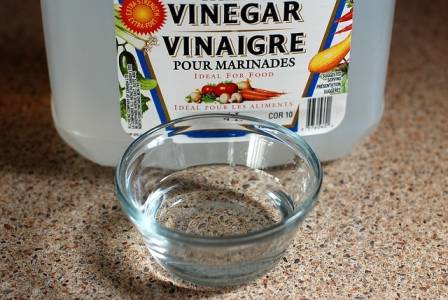House plants are becoming more popular each year. In fact, one of the most popular house plants ever is the ZZ plant! Have you ever heard of or seen a ZZ plant?
Connect with a verified veterinarian in minutes. Licensed vets are available 24/7 to answer your questions. No need to worry about your furry family member.
Because of their popularity, ZZ plants are going to be found in homes that have dogs. However, are these plants toxic to dogs?
What is a ZZ Plant?
The ZZ plant, also know as Zamioculcas zamiifoilia, is very popular mainly because it’s a great plant for anyone and everyone. It’s the perfect plant for beginners or even those who are more advanced and knowledgeable about houseplant care.
ZZ plants also go by some other names including:
- Zee Zee plant
- Zanzibar plant
- ZiZi plant
- Aroid palm
- Eternity plant
One of the other names of the ZZ plant is “plant of steel,” which is because it’s extremely hardy and difficult to kill. It can survive just about everything including being overwatered, dropped, ignored, and more. Another reason for their popularity is that ZZ plants also work as an air purifier in the home. Researchers found the plants can remove benzene, toluene, and xylene from the air.
ZZ plants have very shiny leaves and look so good that many people believe the plants are actually fake. The plants originated in Africa and eventually became popular all around the world.
While these plants are so great in most ways, are they poisonous? Yes, ZZ plants are toxic to pets. This is because they produce calcium oxalates, which can cause serious irritation on the skin, or internally if ingested.
ZZ Plant Poisoning in Dogs
While all parts of the ZZ plant are toxic, the good news is that it is not fatal. If your dog has eaten part of the ZZ plant, you may notice these symptoms:
- Nausea
- Vomiting
- Diarrhea
- Dehydration (from vomiting)
These symptoms may last for a day or so, and you may even notice parts of the plants in your dog’s feces. This is normal. The only concerning factor would be if your dog is vomiting excessively. This can lead to dehydration. So, if your dog has this problem, then it’s best to call the vet. Your dog may need IV support to replace lost fluids.
Otherwise, your canine companion should be OK.
Other issues with the plant are that it can cause skin and oral irritation. This is due to the calcium oxalate, which is extremely irritating. It can cause irritation or even burns. If your dog seems to have this problem, then he should be seen by a vet for treatment.
While these plants don’t cause death, it’s a good idea to either not have them in your home, or keep them where your dog can’t gain access to them.

Review symptoms, medications & behavior to keep your pets healthy with a Vet Online in just minutes.
Ask a Vet Live NowAre ZZ plants toxic to dogs?
Ingesting zamioculcas zamiifolia which is the scientific name for this plant from the araceae family is certainly not recommended. These succulents may cause drooling, kidney stones and calcium oxalate crystals if ingested. Skin irritation is also common, these indoor plants while low maintenance and requiring low-light conditions should be kept away according to ASPCA to keep your pets safe. Philodendron and other rhizomes with sharp edges can be dangerous to both small children as well as cats and dogs.
Stomach ache is common even when ingesting other plants striving in direct sunlight or inderect light. Mucus membranes are particularly sensible to plant toxicity. Pothos and snake plants can also present a risk and it is recommended to wear gloves when manipulating them. Orange peels may also impact mucous membranes. Peace lily or monstera are other common names for this aloe like plants.
Keep Your Dog from Eating ZZ Plants
Dogs are often curious about the things in their environments, including plants such as ZZ plants. Their curiosity may drive a dog to eat the plant. After all, it could be food, so why not? Well, the reality is that these plants can make your dog sick. So, it’s a good idea to keep your fur baby away from the ZZ plant.
Here are some steps you can use to keep your dog away from these plants:
- Ensure the plants are out of your dog’s reach. It may be necessary to place the plant on a high shelf and out of his reach.
- Consider using a hanging pot for younger plants or smaller varieties of the ZZ plant. Hanging pots are effective in keeping the plants away from you dog.
- Place ground coffee or orange peels next to the plant to keep your dog away. These smells act as a repellent.
- Spray one part vinegar mixed with two parts water on or around these plants to ensure your dog stays away. Most dogs don’t like the smell of vinegar.
Consider Pet-Safe Alternatives to ZZ Plants
Another way to keep your dog from accessing ZZ plants is to try some pet-safe alternatives, including:
Cat Palm: these were pretty popular in Victorian times. They are elegant indoor palms that add style and greenery to any space in your ho me.
Guzmania: are bromeliads that come in a wide range of bright colors. These beautiful plants usually flower only once in their lives; however, the blooms last 3-6 months.
Boston Fern: is a bushy, beautiful plant that loves to live in bright, indirect sunlight. They do need humid air. These are not toxic to dogs and look beautiful in any room.
Connect with a verified veterinarian in minutes. Licensed vets are available 24/7 to answer your questions. No need to worry about your furry family member.

Tom
Tom has always loved to write since he was little - he wanted to be either a writer or a veterinary doctor, but he ended up being a professional writer while most of his works are based on animals. He was born in San Francisco but later moved to Texas to continue his job as a writer. He graduated from the University of San Francisco where he studied biotechnology. He is happily married and a soon to be father!
Review symptoms, medications & behavior to keep your pets healthy with a Vet Online in just minutes.
Ask a Vet Live Now




